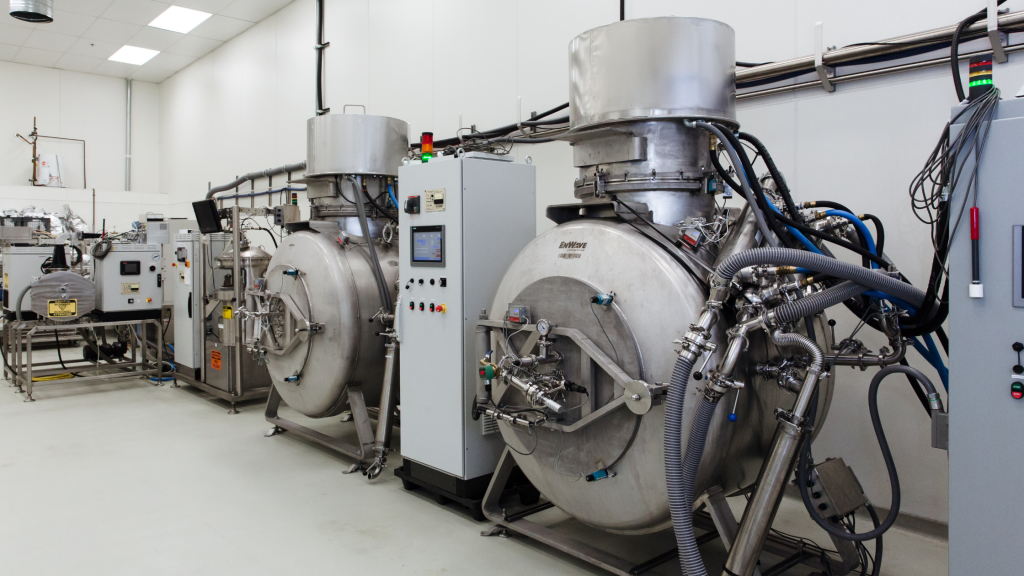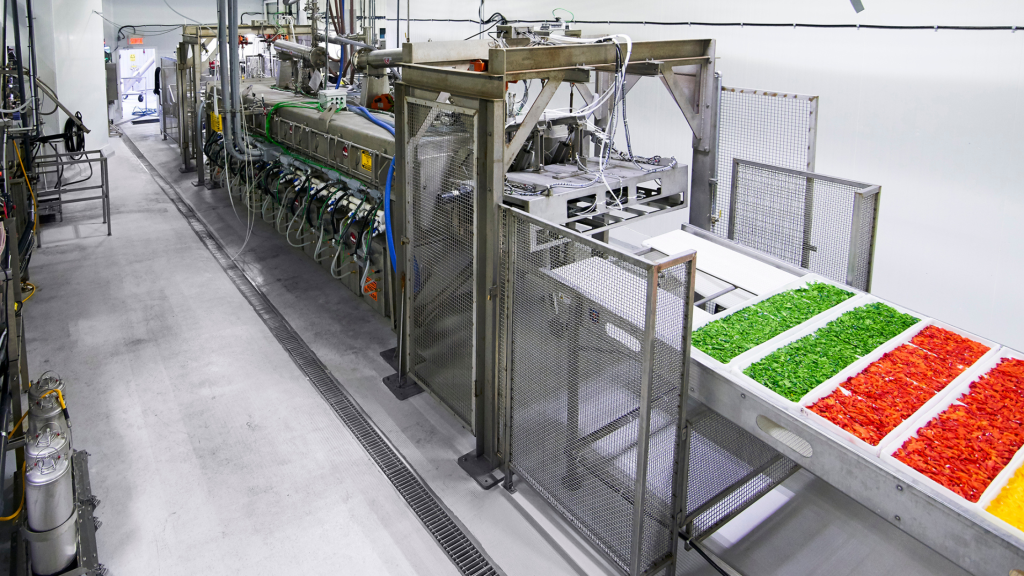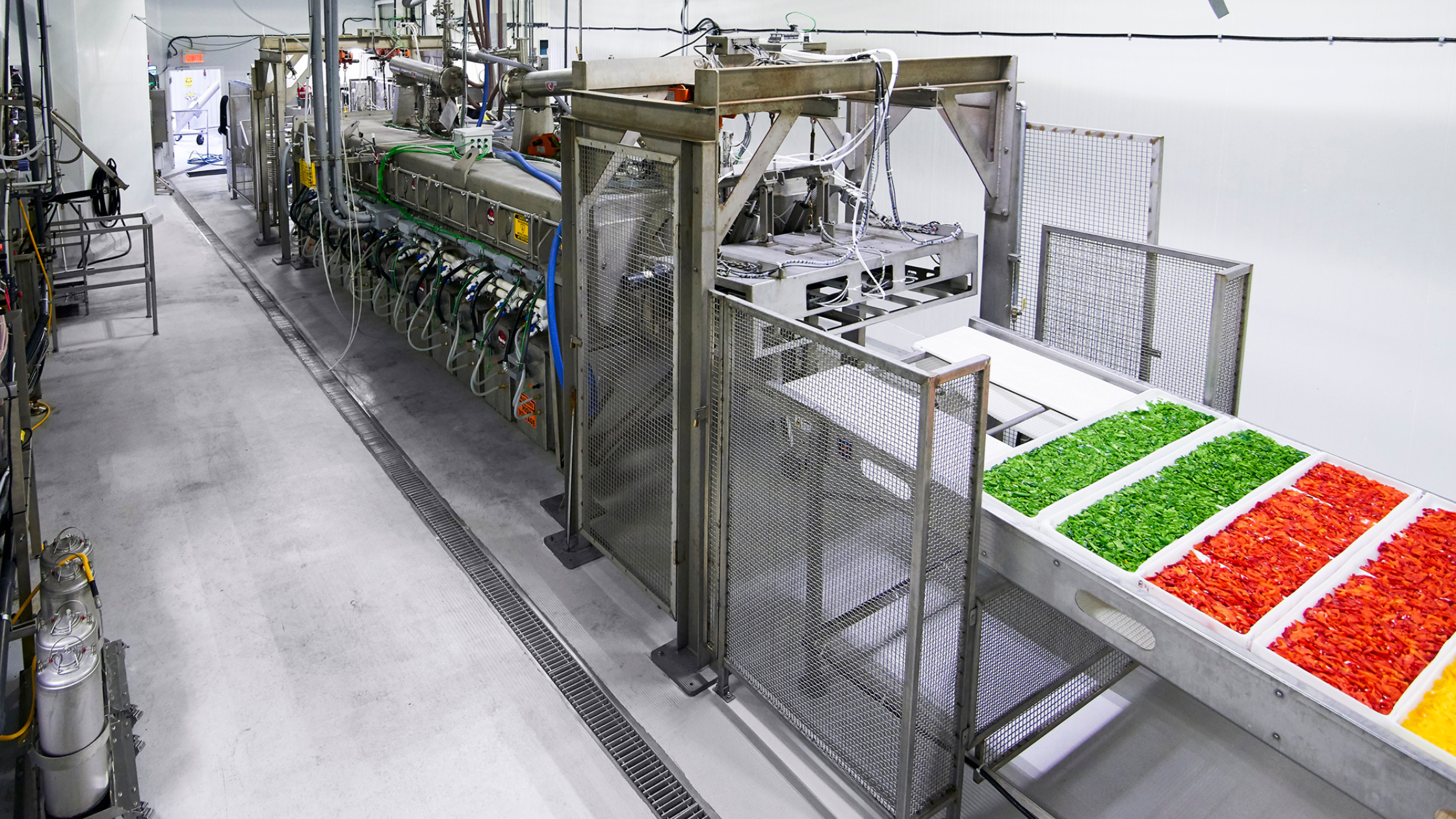How cognitive machinery improves food safety in manufacturing
Food manufacturing has always demanded the highest standards of safety and consistency. Ensuring that every product meets quality expectations is not just critical for protecting consumer health but is also key to building trust and maintaining brand reputation. In a landscape where variability can mean costly recalls or diminished consumer confidence, the integration of cognitive machinery (advanced automated sensors paired with machine learning) is ushering in a new era of precision and control. This blog explores how these technologies are reshaping food production today. It highlights the strengths of automated sensors and artificial intelligence in reducing output variability, improving food safety, and accelerating product development.

The frontline of food production control
Automated sensors are essential components in cognitive machinery. They continuously monitor critical production parameters such as temperature, humidity, moisture content, and microbial presence. This real-time data collection allows manufacturers to maintain tight control over each stage of food processing.
According to a feature in Food & Beverage Business, sensors embedded throughout the production line reduce the risk of contamination and spoilage by providing immediate alerts if conditions stray from safe zones . This proactive monitoring reduces variability in outputs by ensuring consistent processing environments and early identification of potential failures.
The evolution of sensor technology now includes optical, biosensors, and 3D inspection tools that assess physical and chemical attributes of foods without touching the product. This non-invasive monitoring enables detailed quality measurements that surpass human visual inspections, reducing subjective errors and improving product uniformity .
Bringing intelligence to food safety and quality
While sensors gather raw data, it is machine learning (ML) algorithms that transform the data into actionable insights. ML models can detect subtle patterns and predict quality issues before they become defects, enabling timely adjustments.
A recent review highlights how ML-powered computer vision improves accuracy in detecting physical imperfections like bruises or inconsistent sizes in fresh produce and meats, which traditionally relied on manual sorting . In the context of food safety, ML algorithms analyze microbial growth data and environmental variables to predict spoilage risks, optimizing shelf life while ensuring regulatory compliance.
ML also supports automation through decision-making frameworks that speed up cycle times in food manufacturing. By integrating with drying technologies like EnWave’s Radiant Energy Vacuum microwave dehydration, manufacturers can fine-tune drying parameters dynamically, preserving nutrients and textures while maximizing throughput.
Synergy between cognitive machinery and microwave dehydration
Microwave dehydration is celebrated for rapid, even drying that preserves food quality better than conventional methods. When paired with cognitive machinery, the drying process becomes smarter. Automated sensors track moisture loss precisely and feed data into ML models that adjust drying times and energy input in real time.
This synergy accelerates product development by shortening the trial-and-error phase needed to refine drying protocols. It also strengthens food safety by closely monitoring conditions that could foster microbial growth or cause uneven drying, which may lead to spoilage.
These capabilities allow companies to bring innovative, clean-label, and nutrient-rich foods to market faster without compromising on safety or consistency.

Operational and sustainability benefits
Beyond safety and consistency, cognitive machinery optimizes operational efficiency. Automated monitoring reduces downtime by predicting equipment maintenance and minimizing human intervention in repetitive monitoring tasks. This not only cuts costs but also lowers risks of human errors that may lead to safety lapses.
More efficient drying processes supported by automation also reduce energy consumption, a critical sustainability metric. Microwave drying equipment typically uses less energy and produces less waste compared to slower, traditional drying methods, aligning food production with environmental goals.
The future of food production with cognitive machinery
Cognitive machinery, combining automated sensors and machine learning, is revolutionizing food manufacturing. It enhances food safety and consistency, streamlines product development, supports innovative drying methods, and contributes to operational and environmental efficiencies.
EnWave’s microwave dehydration technology is a prime example of how modern food tech benefits from these advancements. Facilitating high-quality, safe, and consistent dried products that meet today’s consumer and regulatory demands.
For food producers keen to advance their product development and manufacturing processes, partnering with EnWave and adopting cognitive machinery is a strategic move toward excellence and market readiness.
Further reading:
- Cognitive Machinery: AI, Automation, and the Future of Food Production, Food & Beverage Business, https://www.foodandbeverage.business/featured-article/cognitive-machinery-ai-automation-and-the-future-of-food-production/
- Sensors & Their Application in Food Processing Industries, Food & Beverage Processing, https://foodnbeveragesprocessing.com/sensors-their-application-in-food-processing-industries/
- Smarter Food Processing with AI, Optical Sensors, and Robotics, Spectroscopy Online, https://www.spectroscopyonline.com/view/smarter-food-processing-with-ai-optical-sensors-and-robotics-enhance-quality-control


